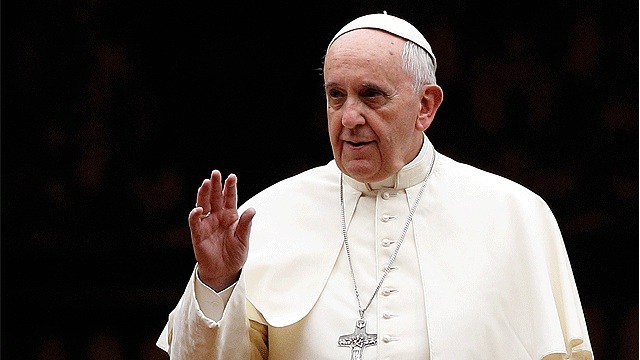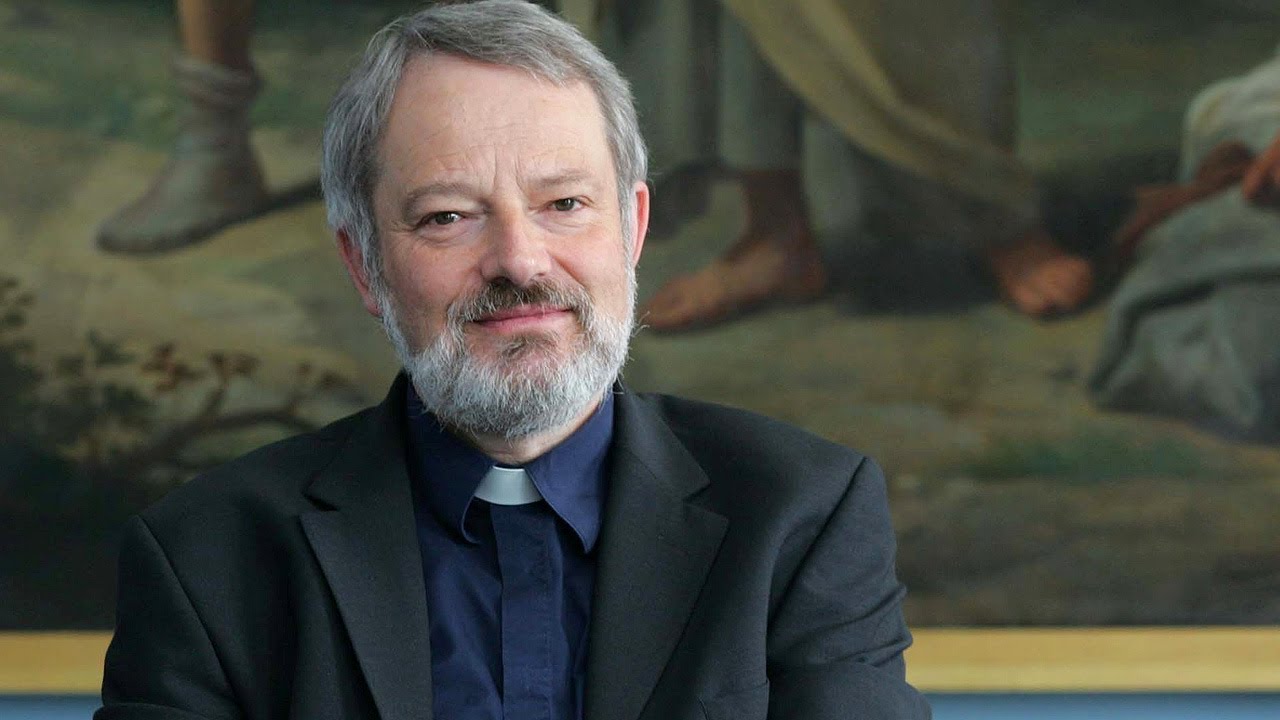
The full meaning of durable relationships would be interpreted by the courts in “hard cases”, using a wide range of measures including whether others send the partners a Christmas card, the chair of the Electoral Commission has said.
There is ongoing debate about whether polygamous and polyamorous relationships would be covered in the proposed expanded concept of the family, among other relationships, in the upcoming referendum.
Ms Justice Marie Baker said terminology introduced into the Constitution had to be “specific but not too specific,” to allow for examples “that haven’t yet been considered”.
She added that interpretation of what was a durable relationship would be somewhat subjective.
“There are all kinds of things, some of them are subjective and some of them are objective. So subjectively, a relationship is durable, if committed, if it presents itself as committed, if it means to be committed, if it intends to be committed.
“Its durability can sometimes be how you are treated by other people. Are you are you invited as a couple to weddings? Do people send Christmas cards to both of you? These are the indicators of your commitment to each other,” she added.

A coalition of women’s groups opposed to the stance of the National Women’s Council of Ireland (NWCI) has called for No votes in the forthcoming referendums.
About 30 members of the Silenced Protest group staged a flash demonstration outside the Mansion House in Dublin on Thursday where the NWCI launched its Yes campaign for both referendums.
Among the organisations represented at the protest were the Irish Women’s Lobby, Women’s Space Ireland and The Countess.
Silenced Protest said a Yes vote was based on a “lie” that article 41.2 states that a “woman’s place in the home”.
“The Constitution states that the State will strive to prevent women having to work outside the home if she doesn’t want to do that,” Irish Women’s Lobby founder Helen Duignan said.
“What unites us all is to maintain a woman or a man’s right to choose whether or not to work outside the home. What they should be putting into the Constitution is the word ‘parents’ that they will not be forced out of the home due to economic necessity. That’s been missed.”

The Medical Council has defended the removal of an instruction not to deliberately kill a patient from its latest ethics code claiming the move had nothing to do with legislative proposals for ‘assisted dying’. However, the move does mean that if the Government does legislate for euthanasia, nothing in the new ethics code will prevent doctors from using their medical skill to kill willing patients.
The Council’s president, Dr Suzanne Crowe, told the Joint Committee on Assisted Dying that the change, has been “misinterpreted,” adding that it “was not the Medical Council taking a stance or paving the way for any possible future change [to the law]”.
“The removal of this sentence does not diminish the law,” she said, adding that the council “does not have a position” on euthanasia.
The guide is “not a legal code. It’s principles-based guidance,” she told Independent Senator Rónán Mullen, who had asked why such a substantial and long-standing section had been removed, something which could be seen as “convenient” by those advocating for Voluntary Assisted Dying (VAD).
“There was no specific consultation in relation to this issue,” she conceded, noting that the council’s ethics committee had proposed the removal, which the council then ratified.

Former Minister for Justice Michael McDowell has questioned the need for a referendum to expand the definition of family in the Constitution after the Supreme Court extended some spousal entitlements to unmarried parents.
Mr McDowell told the Seanad that the Government’s proposals would see other “durable relationships” given the same status as marriage and he questioned whether this was either necessary or desirable.
He also questioned whether a durable relationship could include more than two people. Addressing Minister for Equality Roderic O’Gorman he said: “if it is, don’t just airily dismiss throuples or bigamy or polygamy or polyandry.”
Mr O’Gorman claimed in the Dáil last week that the proposals would not cover such relationships.
Mr McDowell said that in briefings to Oireachtas members Mr O’Gorman had suggested the definition would be determined in the courts.
He said this matter should be for the Oireachtas to decide and said it is “bad politics” to “say pass this legislation, and we’ll find out later what it means”.
Mr McDowell also argued that holding the referendum on March 8th, International Women’s Day, was a “worthless cheap gimmick” that means the legislation is being “rushed through” the Oireachtas.

Tech Billionaire, Elon Musk, has warned that Ireland’s hate speech proposals would put Irish people at “the mercy” of politicians and bureaucrats who may criminalise speech they don’t like.
He said that “people should be concerned” that Irish politicians wanted to define “whatever they think hate speech is”, calling free speech “the bedrock of democracy”.
“You have to be able to speak your mind within the context of the law: without that you don’t have a real democracy”.
Mr Musk said that the default position of X, formerly Twitter, was to “challenge any legislation that infringes on the people’s ability to say what they want to say”.
“And we will also fund the legal fees of Irish citizens that want to challenge the Bill as well,” Mr Musk told Gript.

The Vatican is working on a document on human dignity that contains strong criticism of certain trends in contemporary society including gender ideology and commercial surrogacy.
Cardinal Víctor Manuel Fernández, the Vatican’s prefect at the Dicastery for the Doctrine of the Faith (DDF), told the Spanish news agency EFE that the new document will include “not only social issues but also a strong criticism of moral questions such as sex-change surgery, surrogacy, and gender ideology.”
The news comes days after Pope Francis spoke out against surrogacy, calling it “deplorable” and advocating a global ban. Almost all European countries ban commercial surrogacy and some ban it in all forms. Francis has also often criticised gender theory, referring to it as “dangerous” and “one of the most dangerous ideological colonisations” that blur the differences and value of men and women.

President Joe Biden’s administration has announced new plans to increase access to surgical abortion, chemical abortion, and contraceptives, with the move coming on the 51st anniversary of the Supreme Court’s now-overturned Roe v. Wade ruling. Democrat-run states often allow abortion up until birth for any reason. Republican-run states often ban abortion after six or 12 weeks.
The White House’s push includes new guidance to support surgical abortion through a federal law that guarantees “emergency medical treatment.” The plan also moves forward with prior executive actions to provide easier access to chemical abortions through federal regulation.

Medics should not report women believed to have illegally ended their pregnancy, under new guidance issued by a leading health body in Britain.
The Royal College of Obstetricians and Gynaecologists issued the guidance following ‘the increasing number of police investigations’, into women who have late stage abortions.
Under the current rules NHS staff can breach patient confidentiality and inform police if it is in the ‘public interest’.
In its new guidance the RCOG said healthcare professionals should not call the police to report a suspected illegal abortion without the patient’s consent.
The guidance tells medical professionals that it is “never in the public interest to investigate a patient who is suspected of ending their own pregnancy”.
It adds: “Do not call the police or external agencies if a woman divulges, or you are suspicious, that she may have sought to end her own pregnancy unless she has given explicit consent to do so, or you consider it justified in her best interests.”

The Bishop of Elphin has asked the Irish Medical Council whether they now consider it acceptable for doctors to “take part in the deliberate killing of a patient” after a prohibition against doing so was dropped from the latest code of ethics.
Bishop Kevin Doran added that even if assisted suicide were to be legalised, “that of itself would never make the killing of patients ethical.”
As Chairman of the Catholic Bishops’ Council for Life, he said had written to the president of the Medical Council seeking clarification on the matter, “but my letter has received neither a reply nor even an acknowledgment”.
He said there are numerous defects in the new guide, and cited the deletion of sections on Assisted Human Reproduction (47) and Abortion (48).
He asked: “Is this simply because the law in these areas has changed? Have actions which were previously unethical, and were quite simply ‘bad medicine’, suddenly become ethical because they are now legal?”

A barrister has claimed that the Government’s controversial hate speech bill could leave religious groups open to accusations of hate speech, and may also cause problems for people critical of gender ideology and abortion.
Grace Sullivan also warned that people may not find out how detrimental the Government’s new bill could be to their freedom of speech, until after the law has passed.
Speaking to the Sunday Independent, Ms Sullivan said that while the proposed bill will create an offence to “incite hatred” against an individual or a group on account of “certain protected characteristics” — nonetheless “there is no clear definition of what ‘inciting hatred’ means”.
There is also no requirement that comments are seen to be likely to cause physical harm to another person.
One of the protected characteristics in the bill is ‘gender’ which is defined in terms of radical new gender theory.
“One could conceive of disagreements with this very definition of gender,” she said. “Certainly a diverse number of religious groups would disagree with this definition.”